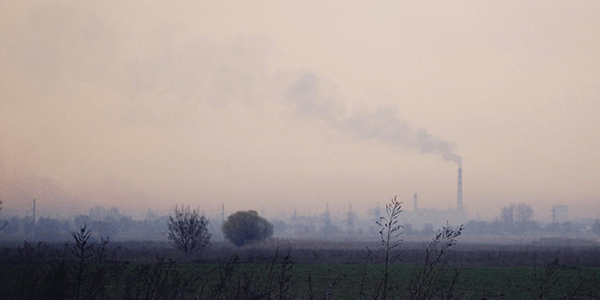Wits scientists scoop prestigious French prize for AI-powered innovation
- Wits University
The award from the Pierre Fabre Foundation recognises a South African innovation that adapts particle physics technology for real-time air quality monitoring.

The University of the Witwatersrand’s Institute for Collider Particle Physics (ICPP) is one of the global winners of the 2025 ODESS Prize in France for a the design and deployment of AI-powered environmental monitoring system.
The award, from the Pierre Fabre Foundation, recognises a South African innovation that adapts particle physics technology for real-time air quality monitoring. The competition attracted a record 350 entries from around the world.
The winning project, led by ICPP Director Professor Bruce Mellado, integrates environmental sensors, IoT communications and artificial intelligence to detect air pollution and related health risks as they happen. Inspired by systems used at CERN to track subatomic particles, the technology offers a cost-effective way to monitor air in communities and respond quickly to hazards.
“This prize shows how the expertise and technologies developed in experimental particle physics can be applied far beyond the laboratory,” says Mellado. “The same principles that allow us to detect fundamental particles can help address challenges in society.”
Mellado and his team have been developing air quality monitoring networks for several years, with devices already deployed in parts of Gauteng, South Africa. These networks provide real-time data that help policymakers and communities act on pollution spikes — an urgent need in areas where respiratory illnesses are on the rise.
At the heart of the award-winning system is the AI_r platform, which combines affordable, high-accuracy sensors with cloud-based analytics. The platform not only monitors air quality but also links environmental data to health outcomes, enabling smarter public health interventions.
“The system’s ability to combine environmental and health data in real time provides actionable information for decision-making, particularly in contexts where resources are limited,” says Professor Mary Kawonga from the Wits School of Public Health and project lead on public health aspects for the project.
The project has been supported by the Department of Science, Innovation and Technology, the National Research Foundation, iThemba LABS, the Canadian International Development Research Centre (IDRC), the UK Foreign, Commonwealth & Development Office, and CERN’s IdeaSquare.
"Research that tackles pressing development challenges is as critical as the air we breathe. This achievement, as part of a joint IDRC and UK Foreign Commonwealth and Development Office initiative, shows how South African leadership and innovation can harness the power of AI in ways that are rooted in local realities and deliver real-world impact," says Chaitali Sinha, Senior Programme Specialist at the Canadian IDRC.
“What truly sets the AI_r technology apart is its potential to empower local communities across South Africa by building capacity to understand and act on environmental and health data independently,” says Professor Jude Kong, Executive Director of AI4PEP and collaborator on the AI_r project. “This democratisation of advanced AI tools fosters resilience from the ground up, enabling sustainable, context-sensitive responses that extend far beyond immediate monitoring to long-term health and environmental improvements.”
The ODESS Prize will be presented on 9 October at the 9th ODESS International Conference in Lavaur, France.

